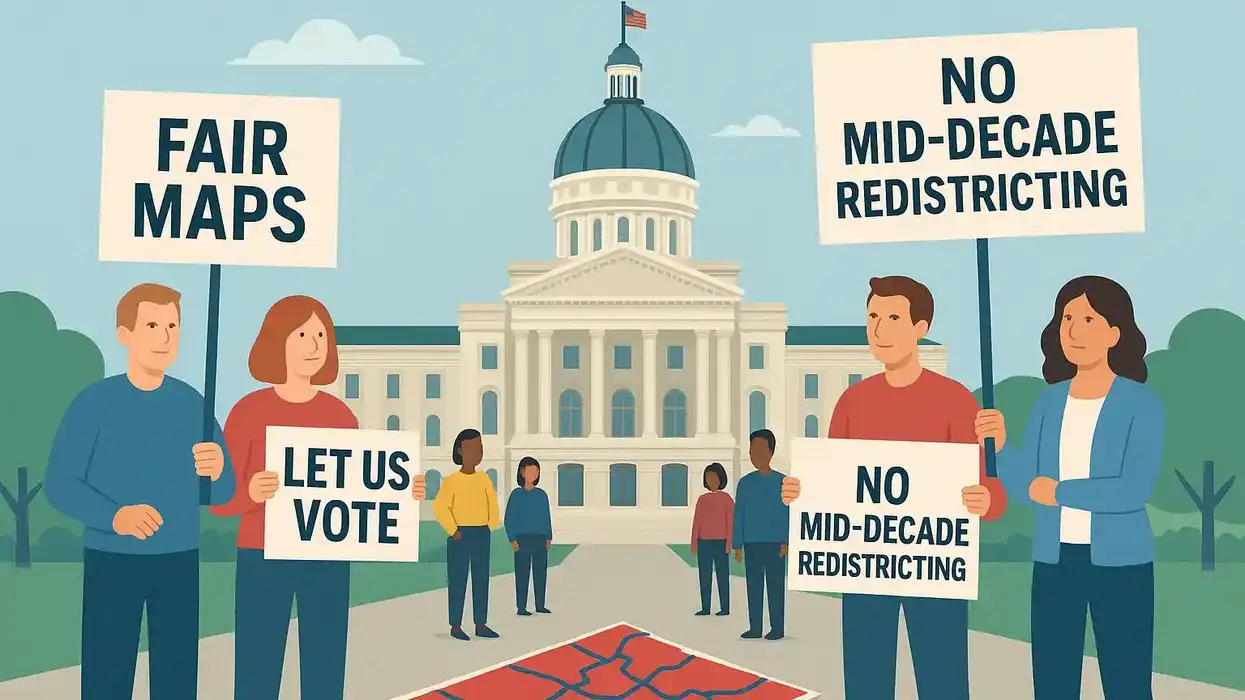INDIANAPOLIS, Ind. -- As Indiana Republicans weigh whether to call a special session to redraw the state’s congressional map, a new Unite America poll shows that voters overwhelmingly oppose the idea — including a majority of GOP primary voters.
The survey, conducted October 7–9 by 3D Strategic Research, found that 44% of Hoosiers oppose mid-decade redistricting while only 31% support it. After hearing balanced arguments from both sides, opposition jumped to 69%, with just 21% still in favor.
The results were released days after Vice President JD Vance visited Indiana to rally support for the redistricting push, a sign of how deeply the Trump administration has inserted itself into state-level redistricting battles.
“Voters across Indiana — including a majority of Republicans — are sick of partisan games that put party over country,” said Nick Troiano, executive director of Unite America.
A Mid-Decade Gerrymander: Few Support, Even Among GOP Voters
Only 10% of Indiana voters say the governor and legislature should call a special session for redistricting. Even among Republican primary voters — the base legislators are targeting — enthusiasm is low:
- 28% said they would be less likely to support a candidate backing mid-decade redistricting.
- Just 17% said they’d be more likely to do so.
When presented with 14 public-policy priorities, “redrawing congressional maps” ranked dead last among GOP primary voters – behind concerns like cost of living, jobs, and public safety.
The results echo concerns voiced by some Republican lawmakers that reopening the maps could backfire politically and further erode public trust.
Unite America has found in yearly research that 90% of U.S. elections are safe for the party in power, whether it is a GOP-controlled district or a Democratic district. This creates an electoral environment where the most consequential votes are made in primary elections.
General elections are all but inconsequential. Thus, the incentive for lawmakers is to cater only to a small, partisan minority that votes in the primaries. This is why polling these voters is so important.
If lawmakers make them happy, they are guaranteed re-election. If they don’t, a primary challenger could take their seat.
Voters Also Reject Closing Primaries to Party Members
The Unite America poll also found that Indiana voters are strongly opposed to closing state primaries to registered party members -- another idea under consideration by GOP lawmakers.
Initially, 52% opposed the move. After hearing arguments from both sides, opposition soared to 77% -- including 66% of Republican primary voters.
Such a change would lock out roughly 2 million independent voters from the elections that matter most in a state where all 9 congressional seats are effectively decided in the primary.
“Every voter should have the freedom to cast a ballot in every taxpayer-funded election,” Troiano said. “I’m not surprised Indiana voters don’t want to give up that right.”
A Message to Lawmakers: Focus on Real Issues
The poll’s findings underscore a consistent message: Indiana voters, across party lines, want lawmakers to focus on cost of living, safety, and the economy – not partisan power plays.
As the Republican caucus meets this week to consider a special session, the data suggest that moving forward with redistricting could deepen voter frustration at a time when trust in government is already at historic lows.
Poll details: Conducted Oct. 7–9, 2025 by 3D Strategic Research among 500 registered voters and 450 Republican primary voters in Indiana. Full results available via Unite America.
New Poll Shows Indiana Republicans Could Lose at the Ballot over Redistricting Plan was first published on IVN and republished with permission.
Shawn Griffiths Is An Election Reform Expert And National Editor Of IVN.us.




















